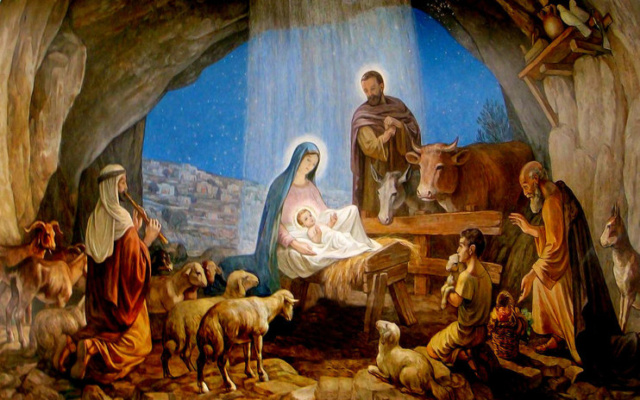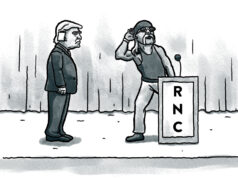For Christians, this weekend culminates with the celebration of the birth of the Christ child who came to provide the greatest gift — self-sacrifice — to secure redemption for humanity. It is a time where we celebrate peace on earth with presents, maybe a candlelight service on Christmas Eve and lots of hustle and bustle with family and friends. Over time, this celebration has moved from the religious realm to Western Christendom and, now, a hybrid secular/commercial/religious holiday.
As a minister, I imagine that preparing for Christmas is akin to a football coach preparing for a major bowl game. There is extra preparation to ensure a wonderful candlelight service for the community.
Did I write a meaningful homily that isn’t too long or too short? Will someone accidentally set something on fire with a candle? Did my Luke 2 reader practice the name Quirinius? How does our liturgy give people a taste of heaven in a world full of chaos during one of the busiest and most stressful weeks of the year?
Peace on earth is definitely needed around Christmas.
Since the mid-2000s, there has been a so-called War on Christmas. Who knew a holiday that celebrates weakness, gentleness and love could become a political issue? Bill O’Reilly helped popularize this notion with his popular Fox News segment.
People threatened to boycott businesses where employees said “happy holidays” even though that is, technically, more correct since Christmas is Dec. 25 through Jan. 5, and the time between Thanksgiving and Christmas Eve is filled with many holidays.
Baby Jesus, meek and mild, became an unwilling hostage in the American culture wars.
Politicization of Christmas at odds with story
Enter Donald Trump. He seized upon this. He declared that if he were elected, “we’re going to start saying Merry Christmas again.” He reiterated this promise on his Thank You Tour last week.
The irony of his statement rests in the transformation of what Christmas represents. Christmas is about weakness. It is about God laying aside power for the sake of others. It embraces poverty, vulnerability and death. In fact, the chroniclers of the Christmas story astutely point out that the birth of Christ made Herod the governor feel threatened.
The Christmas story is replete with images incompatible with state power. An angel appears to a vulnerable woman who had little social standing in her day. A family ushered to their town of origin to be counted for a census only to find no room for rest is relegated to sleep among the livestock. Shepherds, the dirtiest and worst profession of their day, are the first to be told of the glorious birth prophesied of old. And, to make matters worse for the state, the angels declared “peace on earth.”
‘Commodification, consumerism and power’
For my fellow Christians, our celebration this weekend is precisely the opposite of the U.S. election cycle. We need to realize the real War on Christmas is commodification, consumerism and power. We need to recapture the beauty of a God who works through weakness, shows up for the vulnerable and invites the lowly and outcast. That’s the real Christmas story.
That is truly a Merry Christmas.






















